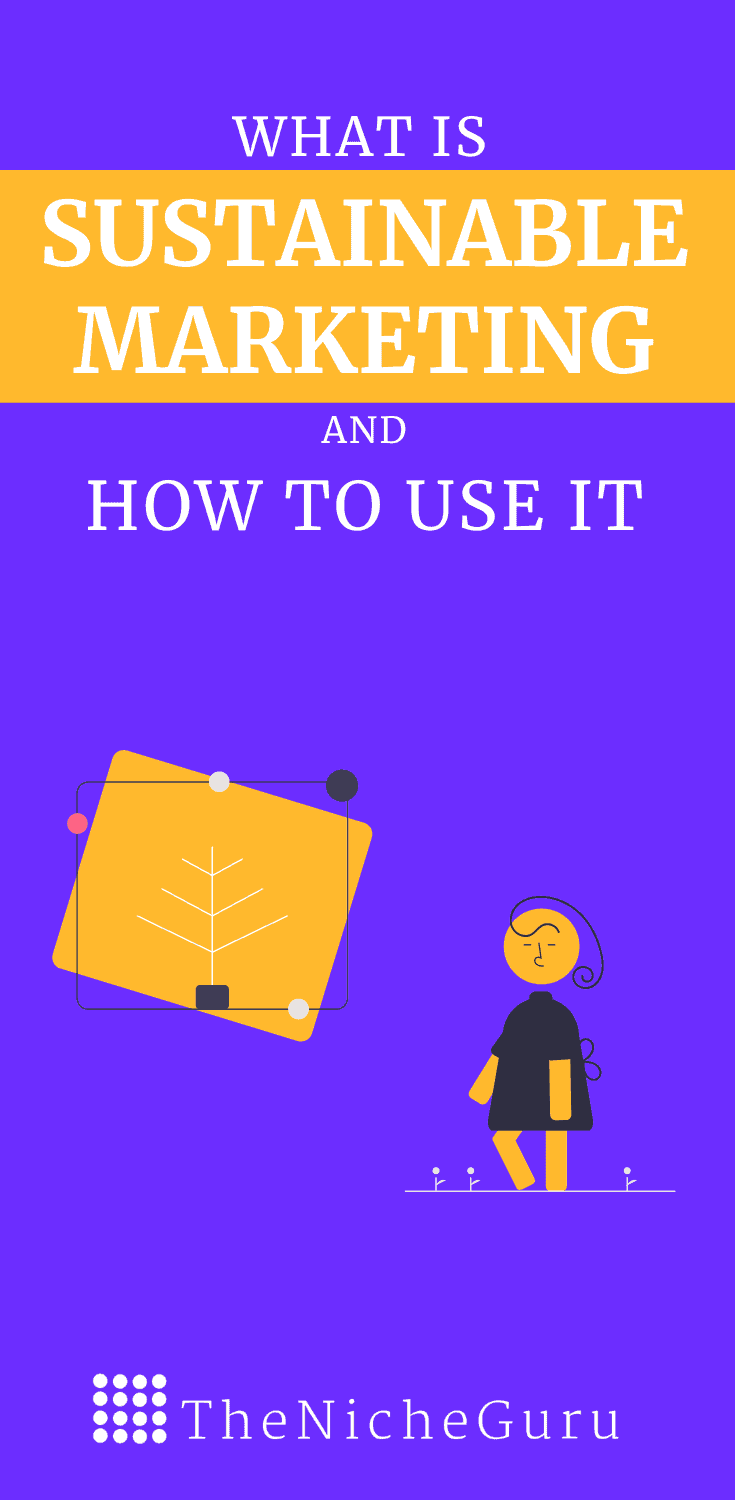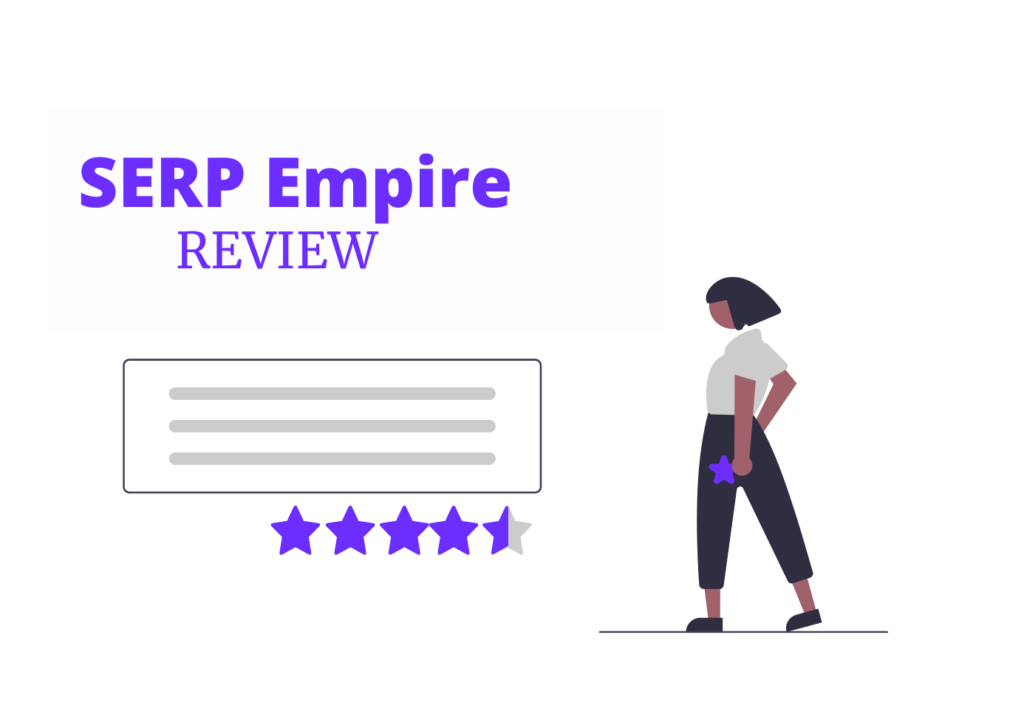Wondering what sustainable marketing is and how you can use it in your business? Sustainable marketing is a type of marketing that doesn’t harm the environment. It focuses on using resources efficiently and reducing waste. This guide will teach you how to use sustainable marketing in your own business, so you can help the environment while also promoting your products or services.
By using sustainable marketing, you can show customers that you’re an ethical and responsible company. You can also set yourself apart from competitors who don’t care about the environment. Plus, sustainable marketing is a great way to save money and resources.
So without further ado, let’s get started on your sustainable marketing guide!
What Is Sustainable Marketing?

Sustainable marketing is a type of marketing that focuses on the long-term health of both people and the planet. It takes into account the environmental and social impact of marketing campaigns, and it strives to find ways to reduce or eliminate negative impacts.
In addition to being environmentally friendly, sustainable marketing is also designed to be economically sustainable. This means that it takes into account the long-term viability of a business and its ability to continue operating in the future.
Green Marketing vs. Sustainable Marketing
It’s important to note that sustainable marketing is not the same as green marketing. Green marketing focuses solely on the environmental impact of a product or service, whereas sustainable marketing looks at the social and environmental impact of a product or service.
For example, let’s say you’re a clothing company that wants to reduce your environmental impact. You might switch to using organic cotton, which is better for the environment than conventional cotton. This would be an example of green marketing.
Now let’s say you’re a clothing company that wants to reduce your environmental and social impact. In addition to using organic cotton, you might also switch to using recycled materials, which reduces your carbon footprint and supports sustainable practices.
Sustainable Marketing Examples

Let me give you a few examples of sustainable marketing in action.
#1. Patagonia
Patagonia is a clothing company that’s well-known for its sustainable practices. The company uses recycled materials in its products, and it also works to reduce waste throughout its supply chain. Patagonia also donates 1% of its sales to environmental causes.
In addition to its sustainable practices, Patagonia is also transparent about the impact of its products. The company provides detailed information about the environmental impact of each product on its website.
#2. Toms
Toms is a shoe company that follows a one-for-one business model. For every pair of shoes purchased, the company donates a pair of shoes to someone in need. Toms has also expanded its giving program to include other items such as eyeglasses and clean water.
In addition to its giving program, Toms also focuses on sustainable practices. The company uses recycled materials in its products and works to reduce waste throughout its supply chain.
#3. Warby Parker
As you can see, sustainable marketing doesn’t just apply to environmental causes. Warby Parker is a glasses company that follows a buy-one-give-one business model. For every pair of glasses sold, the company donates a pair of glasses to someone in need.
Warby Parker also focuses on sustainable practices. For instance, the company offers a recycling program for its glasses. Customers can send their old glasses back to Warby Parker, and the company will recycle them.
#4. Lush
Lush is a company known for its ethical practices and sustainable products. The company creates fresh, handmade cosmetics using only natural ingredients. Lush also offers a wide range of vegan-friendly products.
Lush’s sustainable marketing practices include:
- Offering customers the option to return used products for a discount on their next purchase.
- Working with suppliers who use sustainable farming practices.
- Using recycled materials for packaging.
- Donating a portion of profits to charities that support environmental causes.
#5. Seventh Generation
Seventh Generation’s 2025 sustainability goals include becoming a zero-waste company, ensuring 100 percent of their products are made from renewable energy, and transitioning to paper-based packaging.
In order to achieve these lofty goals, the brand has invested in a lot of sustainable marketing initiatives. For example, they’ve created partnerships with like-minded organizations, developed innovative product packaging, and started using environmentally-friendly materials.
Despite these efforts, some critics have accused Seventh Generation of greenwashing – defined as “the deceptive use of green PR or green marketing in order to promote the perception that an organization’s products, aims or policies are environmentally friendly.”
Whether or not you believe Seventh Generation is guilty of greenwashing, there’s no doubt that they’re a leader in sustainable marketing. And their efforts should be applauded as we all strive to create a more sustainable future.
How to Use it?

Now that you know what sustainable marketing is and have seen some examples of it in action, you may be wondering how you can use it in your own business.
Here are a few tips to get you started:
#1. Conduct a sustainability audit
The first step is to look at your own business practices and see where you can improve. You can start by conducting an environmental audit, which will help you identify areas where you are using resources inefficiently or causing pollution.
Suppose you run a manufacturing company. Your audit might reveal that you are using too much water in your production process or that your packaging is not recyclable. Once you have identified these areas, you can develop a plan to address them.
Here’s how you’re going to do a sustainability audit:
- Review your business practices and identify areas where you could be more sustainable.
- Measure the environmental impact of these practices.
- Set goals for reducing your impact in each area.
- Implement changes to achieve your goals.
- Monitor your progress and adjust your plans as needed.
#2. Develop a sustainability strategy
Once you have conducted your audit and set some goals, you need to develop a plan for achieving them. This is where a sustainable marketing strategy comes in.
Your strategy should be tailored to your specific business and products, but there are some general principles that all businesses can follow:
- Reduce your environmental impact. This can be done by reducing the number of resources you use, using more renewable or recycled materials, or finding ways to reduce pollution.
- Communicate your sustainability efforts to your customers. Make sure your customers know about the sustainable practices you have put in place and how they benefit from them.
- Empower your employees to be sustainable. Encourage your employees to live sustainably both at work and at home. Provide them with resources and support to help them make sustainable choices.
- Partner with other sustainable businesses. Find other businesses that share your commitment to sustainability and look for ways to collaborate. This could involve joint marketing efforts, shared resources, or even co-branding.
#3. Implement sustainable marketing practices
Once you have developed your strategy, it’s time to put it into action. There are many different sustainable marketing practices you can use, but here are a few to get you started:
- Use recycled or recyclable materials in your packaging.
- Offer customers reward for recycling your products.
- Use sustainable packaging materials such as recycled paper or biodegradable plastic.
- Make it easy for customers to recycle your products.
- Educate your employees and customers about sustainability.
- Provide incentives for employees to live sustainably.
#4. Think ahead
Sustainable marketing is not a one-time effort; it’s an ongoing process. As your business grows and changes, you will need to continually adapt your strategy to ensure that you are still meeting your sustainability goals.
It’s also important to stay up to date on the latest sustainability trends. This will help you identify new opportunities for sustainable marketing and ensure that your business is always at the forefront of this important movement.
#5. Be customer-oriented
Ultimately, sustainable marketing is all about your customers. They are the ones who will benefit from your efforts to reduce your environmental impact and live more sustainably.
Make sure that your sustainable marketing efforts are customer-focused and meet their needs. This could involve offering green products, providing eco-friendly packaging, or giving discounts to customers who recycle your products.
By being customer-oriented, you’ll not only be doing your part to help the environment, but you’ll also be building loyalty among your customer base.
#6. Reflect sustainability in every aspect of your brand
Sustainability should be an integral part of your business, not just an afterthought. Make sure that your brand identity reflects your commitment to sustainability.
Your logo, website, and marketing materials should all communicate your sustainable values. And don’t forget about how you run your business—your sustainable practices should be reflected in everything from your office design to how you treat your employees.
#7. Be transparent about your progress
Customers want to know that businesses are walking the walk when it comes to sustainability. Be open and honest about your efforts, and let your customers know how you’re doing.
This could involve sharing your environmental impact report, publishing your sustainable marketing goals, or simply letting your customers know what you’re doing to reduce your carbon footprint.
Being transparent will build trust with your customers and show them that you’re serious about making a difference.
You might want to read next:
Conclusion
Sustainable marketing is a powerful tool that can help businesses reduce their environmental impact, engage their employees, and build loyalty among their customer base. By using sustainable marketing practices, you’ll be able to create a positive impact on the world—and your bottom line.
And with the ever-growing demand for sustainable products and services, there has never been a better time to start implementing sustainable marketing practices in your business. So what are you waiting for? Get started today!
Lastly, I suggest you visit the niche marketing hub to learn effective marketing strategies.
FAQ

RELATED CONTENT




